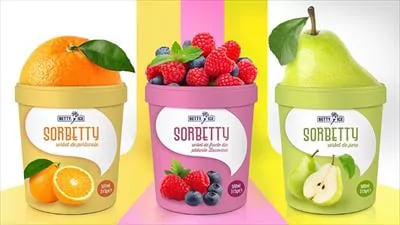The company is evolving its portfolio, both organically and through M&A, at an “unprecedented” level, chief executive Paul Polman noted. “This positions us even better for the faster-growing segments of the future that are obviously key to stay connected with our consumers,” he said during a conference call to discuss the firm’s full-year results.
According to Polman’s assessment, the consumer shift towards products that are viewed as more natural continues to gain momentum. “The trends for more natural, organic, free-from, authentic products [are] only accelerating. The emergence of new distribution channels offers the potential for our brands to reach more directly and deeply than ever before.”
‘Strongest ever’ innovation pipeline
Through its ‘connected 4 growth’ programme, Unilever has initiated a structural shift in its innovation machine. By separating its local and global innovation apparatus, the company wants to deliver the dual ambition of being more responsive and agile in its local teams while also rolling out larger game-changing global innovations.
According to Polman’s assessment, this strategy is paying dividends.
“Our innovation pipeline is getting stronger, and I would actually argue the strongest it has ever been. Our local teams are now empowered to deliver local innovations, allowing our global divisions and R&D team to fully focus on the bigger strategic global launches, leading to larger projects with more benefits,” Polman said.
The chief executive pointed to the launch of Magnum Pints as case in point. The innovation, which has delivered over €40m in turnover in Europe, is now rolling out in the US. Other examples of strategic global innovation at work include the launch of Knorr Natural and Hellmann’s Organic SKUs.
“At the same time, we're addressing key local consumer trends with more relevance and more speed than ever,” Polman insisted.
New ways of working
Unilever is also wants to build new networks to accelerate innovation. The company is utilising brand licensing in the Netherlands for the development of a chilled Knorr range, moving into a new sector in a “low-cost” and “low-risk” way.
“We're starting to see greater entrepreneurial activity in our businesses in all of our categories. This has led, for example, to six new organic brand launches this year alone in 2017,” Polman said.
Illustrating this point, Polman revealed Unilever is launching Red Red, a vegan, gluten-free snack pot inspired by a popular dish in Ghana, in the UK “as we speak”.
The multinational group also wants to increase collaboration with start-ups via the Unilever Foundry to match its brands to “leading technologies”. This led to Hellmann’s first foray into the direct-to-consumer space to deliver fresh ingredients to consumers on-demand in London.
Innovation investment accelerates organic growth
Unilever’s underlying sales growth stood at 3.1% for the full year. Investment enabled the group to accelerate organic sales growth to 4% in the second-half, driven by a 3.2% rise in volumes.
Looking to 2018, Unilever forecast underlying sales growth “ahead of the market” in a 3-5% range.
For the full year, Unilever posted a 1.9% increase in turnover to €53.7bn while pre-tax profit rose 9% to €8.15bn.
Premium push
Acquisitions have been central to Unilever’s efforts to increase exposure to the premium space.
The company completed eleven acquisitions last year, as well as sealing a deal to dispose of its low-growth spreads unit.
Bernstein analyst Andrew Wood expects that M&A will remain an important lever for Unilever to deliver growth in a slow macro environment. For this reason, he suggests, management held off detailing its plans for the €6bn in cash that will be generated by the spreads disposal.
“We were pleased by positive momentum from Unilever's M&A, and delighted that Unilever is not seeing dilution in its top-of-class return on invested capital. Some investors were disappointed by the lack of concrete buyback plans, but we think Unilever is appropriately waiting to size up potential M&A opportunities,” Wood said.
In particular, Wood believes Unilever could be a contender for Reckitt Benckiser’s hygiene and home unit.

While it is true that Unilever has focused much of its M&A activity on the home and personal care space, the group is nevertheless active in the refreshments and food sector. Indeed, earlier this week, the company extended its reach in the premium European ice cream space through a deal to take control of Betty Ice in Romania.
Betty Ice is a perfect fit for Unilever’s strategic focus on premium, natural flavours. Announcing the deal, which was completed for an undisclosed sum, Unilever said Betty Ice was created in 1994 by Romanian entrepreneur Vasile Armenean with the vision of “transforming the perfect dessert into a reality”, creating natural tastes and flavours with “carefully selected” ingredients.
The business generates a turnover of €30m. It operates one factory in Suceava as well as more than 180 ice cream kiosks that are open throughout the summer.
Unilever’s South Central Europe Ice Cream division and Betty Ice will operate as a standalone unit within Unilever and Betty Ice’s founder will continue at the company as general manager. This partnership aims to further expand the brand by combining Unilever’s scale with Betty Ice’s local ice-cream market expertise and knowhow.
James Simmons, MD Unilever South Central Europe, said: “We are delighted that Betty Ice will join the Unilever family. Betty Ice is a wonderful business, much loved by Romanians. I am also very pleased that Vasile Armenean has decided to join our company. He is an outstanding entrepreneur and he will play an instrumental role in creating a bright future for this new business.”
